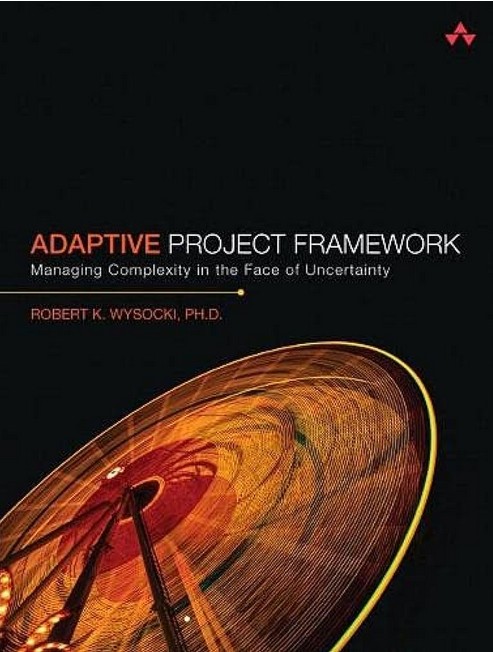Book Review: Adaptive Project Framework
In the category of project management books, the book “Adaptive Project Framework” is a little bit different, as its goal is to present an open framework and not a prescriptive model. As the author Robert K. Wysocki wrote, many project managers prefer to apply an existing recipe for their project. If you are ready to step out of your comfort zone, this book contains many ingredients that will allow you to create your own recipe to manage software development projects.
This book uses two perspectives to analyze the project context: the goal and the solution. Traditional project models work well in a context where both the goal and the solution are clearly identified, but an adaptive project framework (APF) is needed when these elements are not clearly known. In this case, the project should progress with discoveries and adaptation. After setting the initial context of the APF, the book presents its different phases: scope, plan, build and checkpoint.
The dense material of the book “Adaptive Project Framework” is well presented with a clear style. Case studies allow the reader to get a better understanding on how to apply the proposed framework in the real life. I strongly recommend this book to every project manager and software development manager that wants to have better tools to manage change.
Reference: “Adaptive Project Framework, Managing Complexity in the Face of Uncertainty”, Robert K. Wysocki, Addison-Wesley

Quotes
What the client wants is probably not what the client needs. The project manager’s job is to make clients want what they need
Whereas Iterative PMLC [Project Management Life Cycle] models work well in situations where only minor parts of the solution (typically features) have not been implemented in the solution. Adaptive PMLC models are most appropriate for situations where sizable parts of the solution have not yet been identified. In the most complex situations, incompleteness could even extend to requirements.